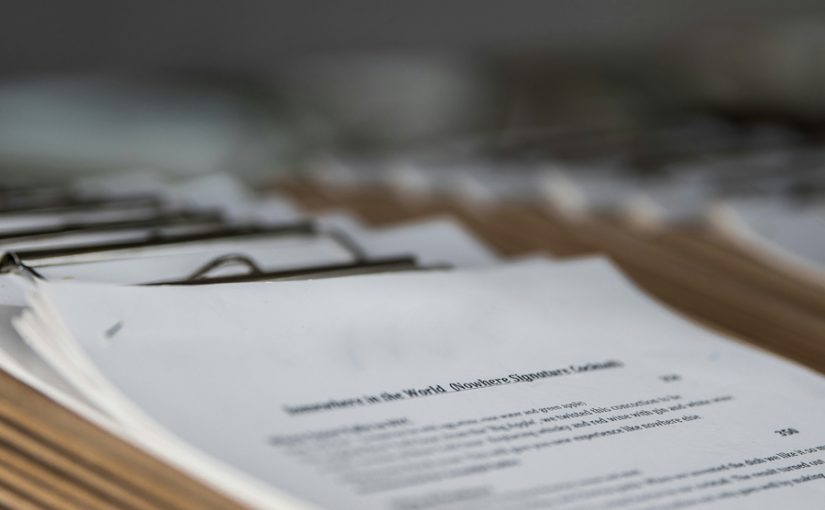A homily for the Fifth Sunday in Ordinary Time, February 4, 2024
Jb 7:1-4, 6-7, 1 Cor 9:16-19, 22-23, Mk 1:29-39
In my first job as a professional journalist, at the now-defunct Daily and Sunday Register in Shrewsbury (better known as the Red Bank Register), I was obliged to do a lot of typing. Sports scores and statistics, mostly. Long, long lists of stats and records. Much of it was on a tweaked IBM Selectric typewriter, modified so my words on legal-size paper could be scanned into a rudimentary computerized typesetting system.
This was 1978, after all.
I also had the task of tapping the keyboard of a hand-me-down phototypesetting system, sent from The Register’s absentee owners in Toledo. Yes, the hometown of Max Klinger from M*A*S*H. Into that “tube,” I transcribed the wit and wisdom of George Sheehan, The Running Doctor, as well as the results of the thoroughbred races at Monmouth Park.
It was tedious, what a colleague years later would refer to as “chimping.”
A different colleague, though, had a more sanguine outlook: “That’s why they call it ‘work.'”
And he was right.
Some aspects of everyday life and work are pains in the (choose your body part), but we can’t avoid them. And to press through them, it’s best if we don’t overthink them. Just do and be done.
We’d never guess from our first Scripture passage today that we’d ever say someone had “the patience of Job,” not from the woe-is-me self-flagellation old Mr. I Must Have Slipped on a Banana Peel is undertaking.
This reading seems to be an odd snippet, considering how deeply we believe in Job’s endurance. Indeed, elsewhere in the Book of Job, we learn that he was generous to a fault — if there is such a thing — and that everyone who encountered him truly was blessed. And that the blessings all returned to him.
But then (screeching sound effect), he no longer was blessed, and blessings no longer flowed in his direction.
And every part of his life became drudgery, a humongous weight he had to carry, a set of figurative shackles that hindered his every movement.
So he grumbled and complained and saw no end to his life’s misery, as many of us might.
Is that really what God wants for us?
St. Paul’s letter to the Corinthians is a bit cheerier, but only a bit. In it, he says he has accepted the task of preaching the Good News, that he has devoted the rest of his life to gathering a flock for the Good Shepherd. There’s a hint of resignation in his description of his mission, a sense of “somebody’s got to do it, so it might as well be me,” but at no point does he hint that the task is impossible.
Quite the opposite, in fact. Our Gospel selection lays that out for us.
Paul — like Simon’s mother-in-law and all of us — was strengthened by the nonstop healing power of Jesus. By the abundant flood of grace and inspiration that flows from the Holy Spirit. By the never-ending flood of gifts from our Creator.
I can’t tell from our Gospel reading whether Simon, Andrew, James or John helped the formerly ill woman to offer hospitality to Our Lord. My guess is that they didn’t, given the patriarchal division of labor in first-century Israelite homes.
Simon’s mother-in-law got to work, she did her job, strengthened by Jesus. She did her job, and by doing so, made it possible for Jesus and the Apostles to do theirs. Jesus and his crew, fed and rested, were able to go forth with Good News and even greater deeds such as healing and exorcising because Simon’s mother-in-law served them almost anonymously.
And that may well be a big takeaway from these semi-gloomy readings.
Yes, that’s why they call it work. That’s why housework is described as something that nobody notices unless it’s not done. That’s why every famous person has a multitude of people who made their stardom possible.
Like us.
That’s why, even today, Jesus, our true North Star, the star above all others, needs us to shake off our aches and pains and wait on those in need, to be community and Church and Christ for each other, to derive our joy from service and not spotlight, to share the Good News and inspire others to share the Good News as well.
And to do it with joy, hope and love, which are rewards in themselves.
